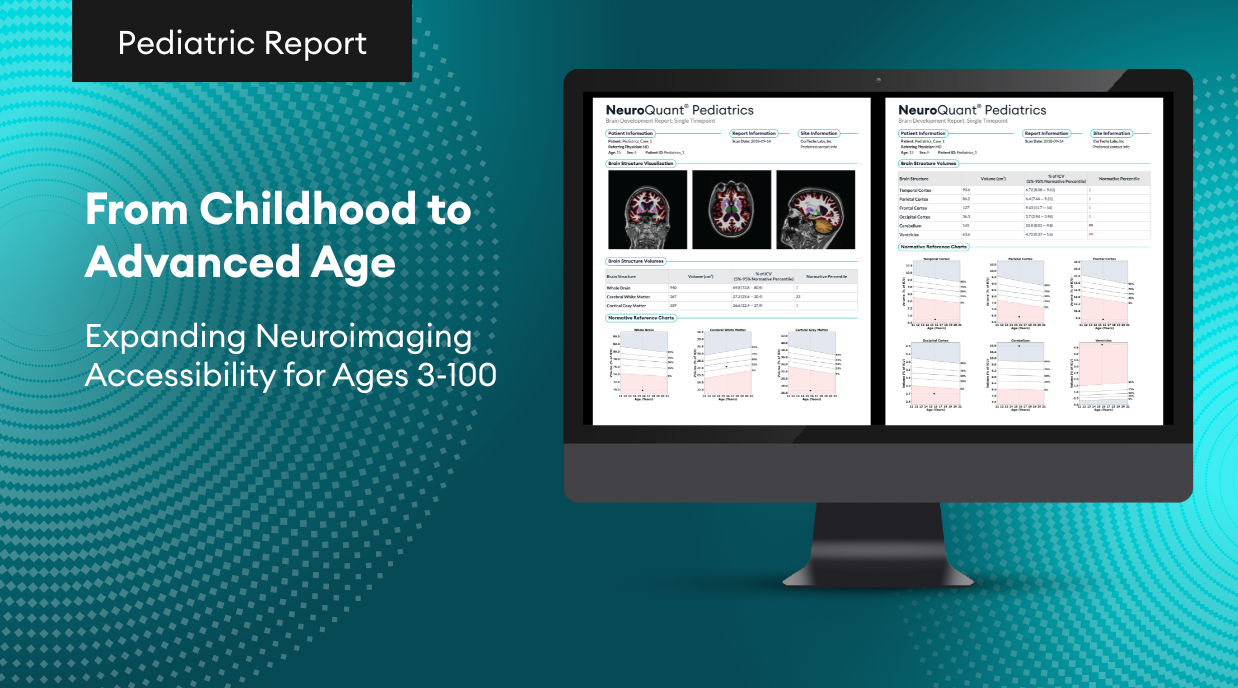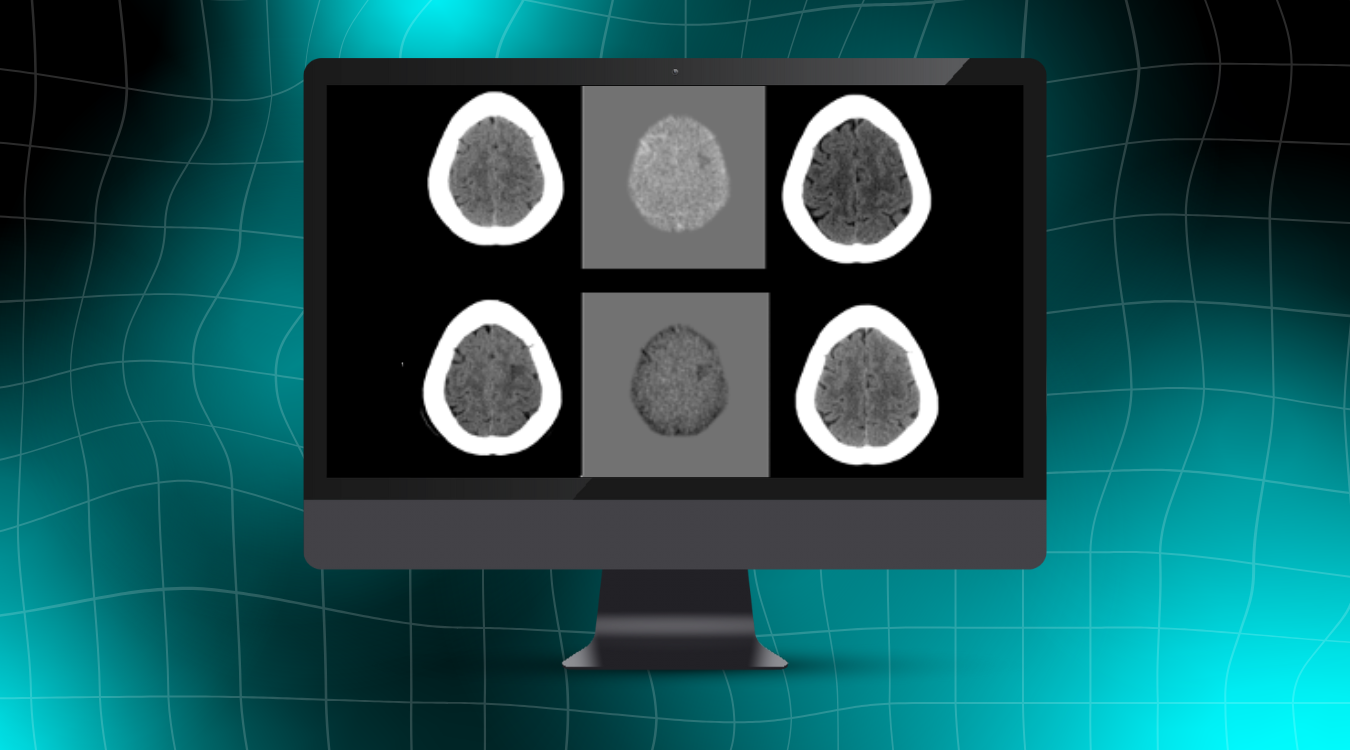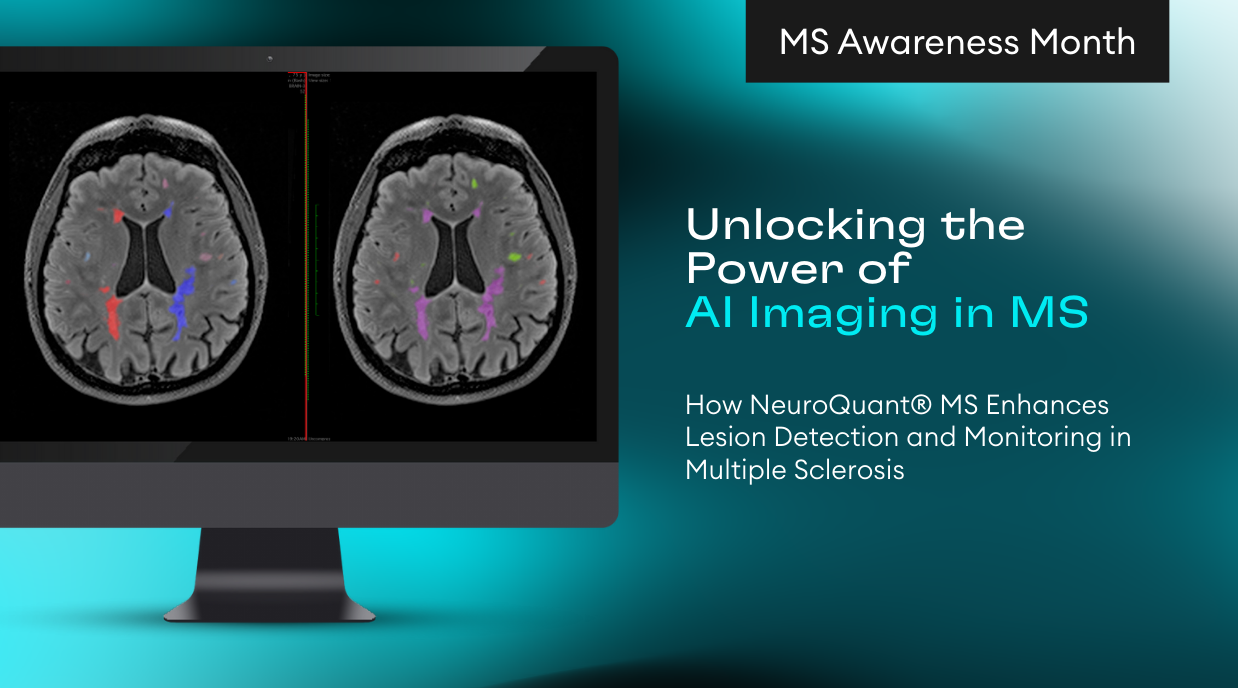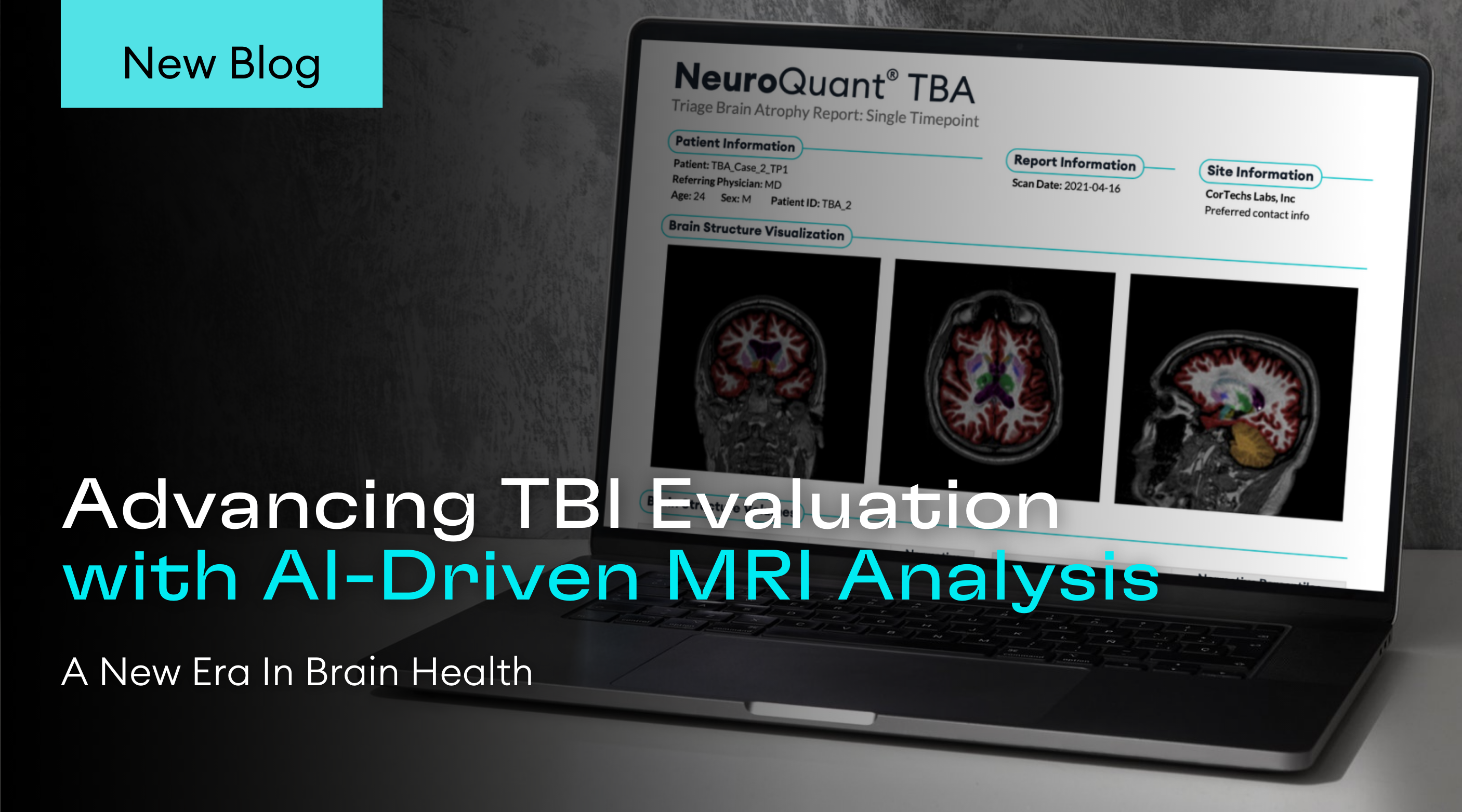Cortechs.ai’s FDA-cleared NeuroQuant Brain Tumor software represents a transformative innovation in neuro-oncology, enhancing radiologists’ ability to evaluate brain tumors with greater accuracy and efficiency. Leveraging artificial intelligence (AI), the software automates segmentation and volumetric analysis of high- and low-grade diffuse gliomas, both pre- and post-treatment, enabling precision-based longitudinal monitoring of tumor changes over time.
“The software calculates the volume of enhancing tumor tissue as well as the surrounding zone of FLAIR hyperintensity,” explains Suzie Bash, MD, a Medical Director at RadNet and Chief Medical Officer at Cortechs.ai. FLAIR hyperintensity, if present, may indicate vasogenic edema, gliosis, or neoplastic infiltration into adjacent brain tissues. The software distinguishes and quantifies the enhancing tumor tissue and surrounding FLAIR hyperintensity, as well as the central necrotic core and post-operative resection cavity.1 These measurements facilitate longitudinal tracking of these tumor subregions in addition to overall tumor size.
According to Dr. Bash, “automated, AI-powered segmentation significantly enhances the accuracy and efficiency of longitudinal brain tumor assessment across multiple time points. Traditional manual measurements are labor-intensive, prone to inaccuracies, and subject to inter-reader variability due to complex tumor morphology and technical variations between studies. In contrast, automated tumor volume quantification provides precise, reproducible, and objective measurements for evaluating interval changes.”
Addressing the Challenge of Tumor Progression vs. Treatment-Related Changes
“One of the most significant hurdles in brain tumor imaging is differentiating disease recurrence from treatment-induced pseudoprogression. To address this, NeuroQuant Brain Tumor incorporates patented Restriction Spectrum Imaging (RSI), an advanced diffusion-based deep learning method. RSI helps distinguish true tumor progression, which appears “hot” on RSI maps, from pseudoprogression, thereby serving as a valuable imaging biomarker for glioblastoma multiforme,” states Dr. Bash.
Jeff Rudie, MD, PhD, a neuroradiologist at Scripps Health and assistant adjunct professor at UC San Diego, highlights a recent novel deep learning model his team developed integrating RSI with traditional structural MRI sequences (T1 pre-contrast, T1 post-contrast, T2, and FLAIR) for more precise identification of regions of active cellular tumor. The model augments the capability to differentiate true progression from pseudoprogression, as well as infiltrating tumor from edema and gliosis.2 “RSI alone is useful, but combining it with structural sequences improves our ability to detect progression and predict survival,” notes Dr. Rudie. Future iterations of NeuroQuant Brain Tumor will incorporate this advanced combined RSI cellular tumor model.
Expanding Applications and Impact on Patient Outcomes
NeuroQuant Brain Tumor is expanding its capabilities this year to include meningiomas and metastases, which represent a significant proportion of central nervous system neoplasms, states Dr. Rudie. He also notes that the software can be integrated into radiation treatment planning systems, offering enhanced precision in targeting lesions, ultimately improving patient outcomes.
“Early detection of metastases, even as small as one millimeter, through automated software has the potential to significantly impact patient morbidity and mortality,” emphasizes Dr. Bash.
NeuroQuant Brain Tumor was trained on data from 59 sites using multichannel input and multiclass output convolutional neural networks, underscoring its robust development process for brain tumor imaging, states Dr. Rudie. This technology provides critical support for radiologists, oncologists, and neuro-oncologists by delivering an objective, quantitative analysis of evolving brain tumors.
By advancing the precision and efficiency of tumor imaging, NeuroQuant Brain Tumor exemplifies the potential of AI-driven tools to revolutionize cancer diagnosis, treatment, and longitudinal care.
About Cortechs.ai
Cortechs.ai is a leader in AI applications in radiology. Cortechs.ai uses cutting-edge technologies in medical imaging to revolutionize disease screening and early detection so patients can enjoy longer, healthier lives. The company develops and markets breakthrough medical device software that quantifies and tracks neurodegenerative diseases, and assists in the detection of clinically significant cancer. Cortechs.ai’s industry-leading brain imaging software provides radiologists, neurologists, oncologists, and clinical researchers worldwide with a convenient and cost-effective way to quantify brain structures for assessing Alzheimer’s disease, epilepsy, multiple sclerosis, brain trauma, brain tumors, and other brain abnormalities. The company has FDA-cleared products for use in helping the diagnosis and follow-up of neurodegenerative and traumatic brain conditions, as well as prostate cancer. Please visit www.cortechs.ai for further information and follow us on Twitter, LinkedIn, and Facebook.
References:
- Baig S, Vidic I, Mastorakos GM, et al. Segmentation of Pre- and Post-Treatment Diffuse Glioma Tissue Subregions Including Resection Cavities. Neuro-Oncology Advances. 2024 6:1. doi.org/10.1093/noajnl/vdae140.
- Gagnon L, Gupta D, Mastorakos G. et. Al. Deep Learning Segmentation of Infiltrative and Enhancing Cellular Tumor at Pre- and Posttreatment Multishell Diffusion MRI of Glioblastoma. Radiology: Artificial Intelligence2024 6:5. https://doi.org/10.1148/ryai.230489






